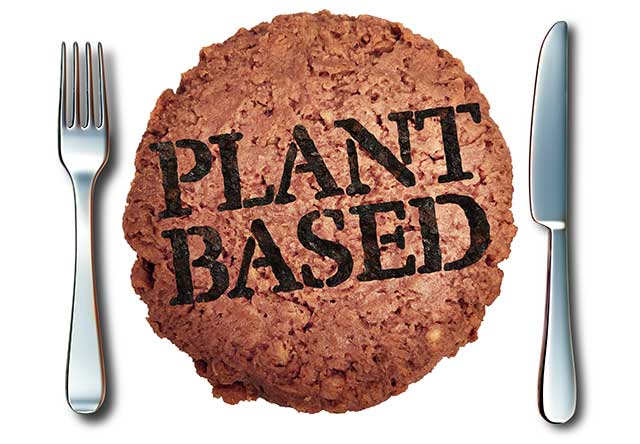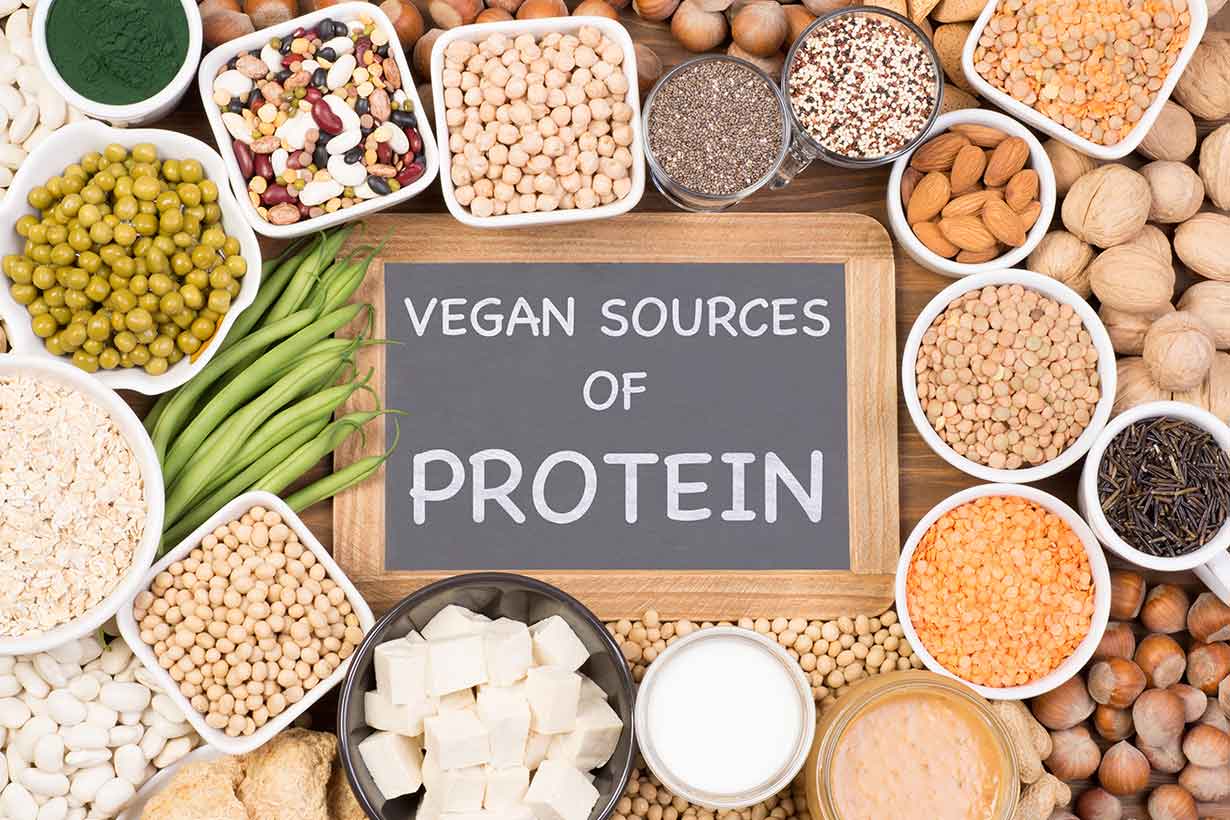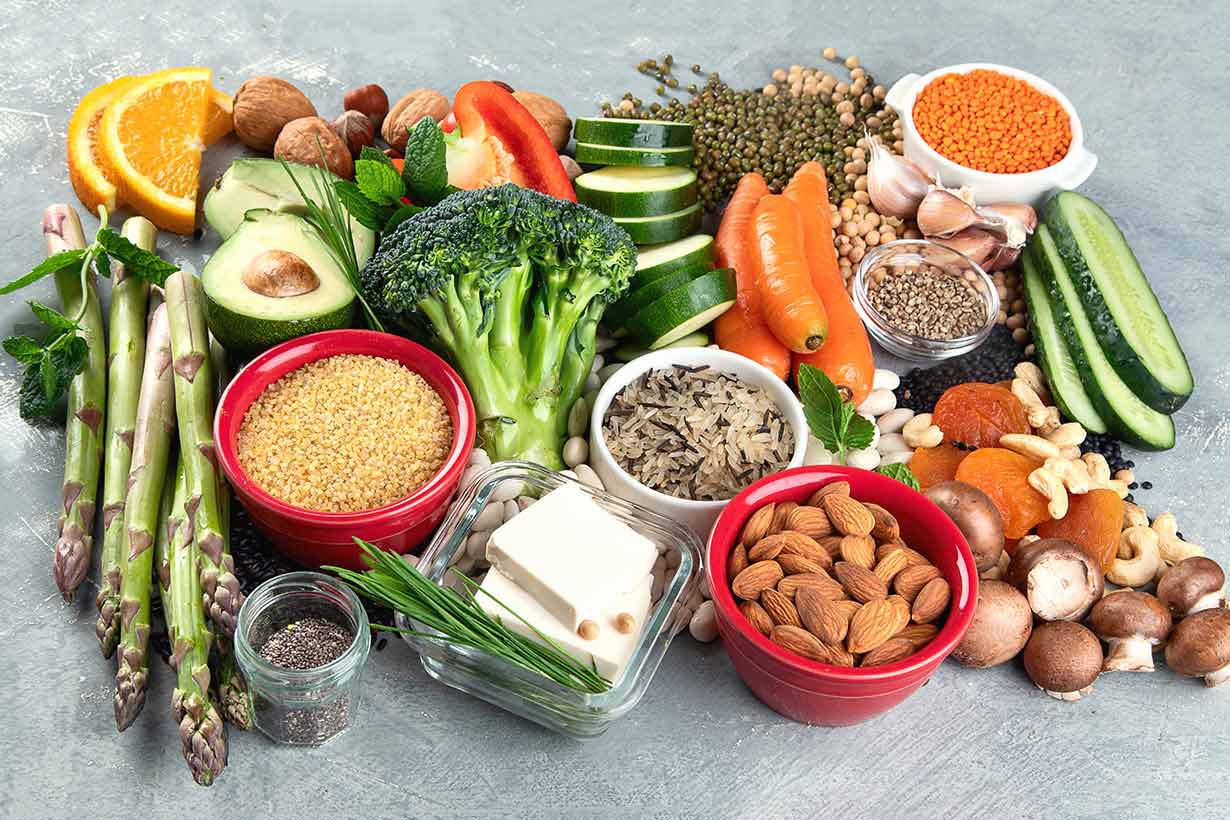Néstle’s ‘Awesome Burger’ has recently launched.
The burger claims to be “just as meaty and juicy” as a traditional burger and boasts about its “plant-based goodness”.
However, what does this latest plant-based product offer nutritionally?
In this article, we inspect its nutritional value, how it compares to its competitors, and how it fares against regular beef.

What Is the Awesome Burger?
Similar to other plant-based burgers, the Awesome Burger aims to replicate the appearance and taste of a traditional beef burger.
In terms of appearance, it somewhat mimics the look of a ground beef patty, and the burger is said to have a “meaty taste.”
A brand called Sweet Earth produces the Awesome Burger.
Sweet Earth are wholly-owned by Néstle, so the Awesome Burger has some serious marketing money behind it (1).
Ingredients Profile
The Awesome Burger contains a wide range of ingredients, and the full ingredients listing is as follows (2):
- Water
- Textured pea protein
- Coconut oil
- Wheat gluten
- Canola oil
- Methylcellulose
- Natural flavors
- Distilled Vinegar
- Fruit and vegetable juice concentrate
- Dried malted barley extract
- Dried vinegar
- Cultured corn starch
- Sea salt
- Salt
- Ascorbic acid (vitamin C)
- Thiamine hydrochloride (vitamin B1)
- Potassium chloride (potassium)
While most of these ingredients will be familiar by name, people may know less about the following inclusions.
Textured pea protein
Textured pea protein refers to the isolated protein fragments of peas.
Production of pea protein makes use of a process that involves various dry and liquid phases. The result is the mechanical separation of pea proteins from fiber and starch (3).
Following this, the protein is either heated at extremely high temperatures or dry sprayed to form into a powder.
Manufacturers use yellow split peas to produce pea protein (4).
Methylcellulose
Methylcellulose is a chemical produced from cellulose.
It is a type of insoluble fiber that manufacturers use as a thickener in various food products (5).
Natural Flavors
The name ‘natural flavors’ can be confusing.
Firstly, natural flavors refer to a flavoring substance that has a natural origin (6).
However, providing the substance has a natural (plant) origin, it can then be processed or treated in a wide range of different ways.
The end product is far from its original form, but how natural something is (or isn’t) doesn’t necessarily dictate its health properties.
In addition to their inclusion in the Awesome Burger, natural flavors are common ingredients in soft drinks, candy, and flavored protein supplements.
Not Suitable For Gluten-Free Diets Or People With Celiac Disease
It is important to note that wheat gluten is one of the Awesome Burger’s ingredients.
For this reason, the Awesome Burger is unsuitable for those individuals following a gluten-free diet.
Nutrition Facts
Now that we know the ingredients of the Awesome Burger, what does it offer nutritionally?
The table below shows the nutritional values per serving, as disclosed by the manufacturer (7).
| Calories/Nutrient | Amount |
|---|---|
| Calories | 260 kcal |
| Carbohydrate | 9 g |
| Fiber | 6 g |
| Sugars | 3 g |
| Fat | 15 g |
| Saturated Fat | 7 g |
| Protein | 26 g |
As shown, the Awesome Burger offers a good source of protein.
The carbohydrate it provides is primarily fiber.
There are 15 grams of fat, approximately half of which is saturated fat from coconut oil.
| Vitamin/Mineral | Amount | % DV |
|---|---|---|
| Calcium | 170 mg | 15 % |
| Iron | 4.9 mg | 25 % |
| Potassium | 200 mg | 4 % |
On the negative side, the Awesome Burger is a relatively poor source of vitamins and minerals.
Per serving, the burger provides a moderate amount of calcium and a moderate-to-high dose of non-heme iron.
The Awesome Burger also offers a small amount of potassium.
How Does The Awesome Burger Compare To Other Plant-Based Burgers?
In the table below, you can see how the basic nutrition values of the Awesome Burger compare to other plant-based burger options (7, 8, 9).
| Calories/Nutrient | Awesome Burger | Beyond Burger | Impossible Burger |
|---|---|---|---|
| Calories | 260 kcal | 250 kcal | 240 kcal |
| Carbohydrate | 9 g | 3 g | 9 g |
| Fiber | 6 g | 2 g | 3 g |
| Sugars | 3 g | 0 g | <1 g |
| Fat | 15 g | 18 g | 14 g |
| Saturated Fat | 7 g | 6 g | 8 g |
| Protein | 26 g | 20 g | 19 g |
As shown in the table, the three most famous plant burgers are relatively similar nutritionally.
However, the Awesome Burger offers more protein and fiber.
How Does the Awesome Burger Compare To Beef Nutritionally?
In recent months, there has been a big marketing push about the respective health merits of plant-based proteins.
On this note, and since the Awesome Burger claims to be a nutritious alternative to beef, we should look into how the two compare.
In the table below, you can see a direct comparison between the nutritional values of the Awesome Burger and an 80% lean beef burger (7, 10).
| Calories and Nutrients | Awesome Burger (4 oz) | Beef Burger (4 oz) |
|---|---|---|
| Calories | 260 kcal | 288 kcal |
| Carbohydrate | 9 g | 0 g |
| Fat | 15 g | 18.3 g |
| Saturated Fat | 7 g | 8.2 g |
| Protein | 26 g | 28.6 g |
| B1 (Thiamin) | – | 0.05 mg (3.3% DV) |
| B2 (Riboflavin) | – | 0.2 mg (11.4% DV) |
| B3 (Niacin) | – | 5.3 mg (26.2% DV) |
| B5 (Pantothenic acid) | – | 0.7 mg (6.5 % DV) |
| Vitamin B6 | – | 0.4 mg (18.7 % DV) |
| Vitamin B12 | – | 2.8 mg (47.1 % DV) |
| Calcium | 170 mg (15 % DV) | 26.1 mg (2.6 % DV) |
| Copper | – | 0.09 mg (4.5 % DV) |
| Iron | 4.9 mg (25 % DV) | 2.9 mg (6.3 % DV) |
| Magnesium | – | 21.6 mg (5.4 % DV) |
| Manganese | – | 0.01 mg (0.5 % DV) |
| Phosphorus | – | 203 mg (20.3 % DV) |
| Potassium | 200 mg (4 % DV) | 307.3 mg (8.8 % DV) |
| Selenium | – | 23 mcg (32.9 % DV) |
| Sodium | – | 76 mg (3.2 % DV) |
| Zinc | – | 7.1 mg (47.2 % DV) |
As we can see, the protein and fat content is similar. Unlike regular beef, the Awesome Burger also provides carbohydrate/fiber.
However, regular beef burgers offer a vastly superior micronutrient profile.
As shown in the nutritional values, beef burgers provides a wide range of vitamins and minerals, and particularly high amounts of selenium, vitamin B12, and zinc.
In contrast, the Awesome Burger only provides small amounts of calcium, iron, and potassium.
Protein Bioavailability
When we discuss protein content, we should also consider the bioavailability of that protein for a complete picture. Protein bioavailability refers to the amount of protein that we can actually digest and absorb from the food we eat.
As previously mentioned, the source of protein in the Awesome Burger is pea protein.
According to the digestible indispensable amino acid score (DIAAS) protein quality ratings, pea protein has a score of 82 (11).
While this score is superior to some sources of plant protein, it is inferior to soy protein (DIAAS score 90.0) and meat products (DIAAS scores >100.0) (11, 12, 13).
The DIAAS rating is thought to be the most accurate method of judging protein quality, and a score of 82 translates as a ‘medium quality protein.’ Scores over 100 achieve ‘high-quality protein’ status (13).
DIAAS measures the true digestion of amino acids in the ileum, which is at the end of the small intestine. Thus, we can ascertain how much of the amino acids in the food we absorbed (14).
Amino Acids
Pea protein is a complete source of protein, which means it contains all nine essential amino acids.
However, it is relatively low in the amino acids lysine and methionine (15).
Studies demonstrate that pea protein can help promote gains in muscle mass (16).
Is the Awesome Burger a Healthy Option?
Overall, whether the Awesome Burger is a good choice or not depends on the reason people are buying it.
Nutritional Considerations
On a nutritional basis, the burger is a good source of protein.
However, it is missing numerous key vitamins and minerals that are present in beef, most notably the B vitamins.
For this reason, a regular beef burger, which contains a wide range of micronutrients, is a superior choice nutritionally.
It is also important to remember that it can be harder to get an adequate supply of nutrients on a vegan diet.
In this context, regularly eating a food product like the Awesome Burger could make achieving a nutritionally adequate diet even more difficult.
For people following vegetarian and vegan diets, traditional plant proteins such as lentils and beans offer better nutritional value than the Awesome Burger.
A Burger-Like Experience For Vegetarians
On the other hand, the Awesome Burger offers more protein than its direct plant-based burger competitors.
For those who choose not to eat meat yet want a burger-like experience, the Awesome Burger may be worth investigating.
Other plant-based products, such as Beyond Beef, may offer what some people are looking for.
That said, focusing on nutrient-dense, minimally processed foods would be the healthier option.
Related Articles
Vegan Propaganda and Meat: Separating Fact From Fiction







